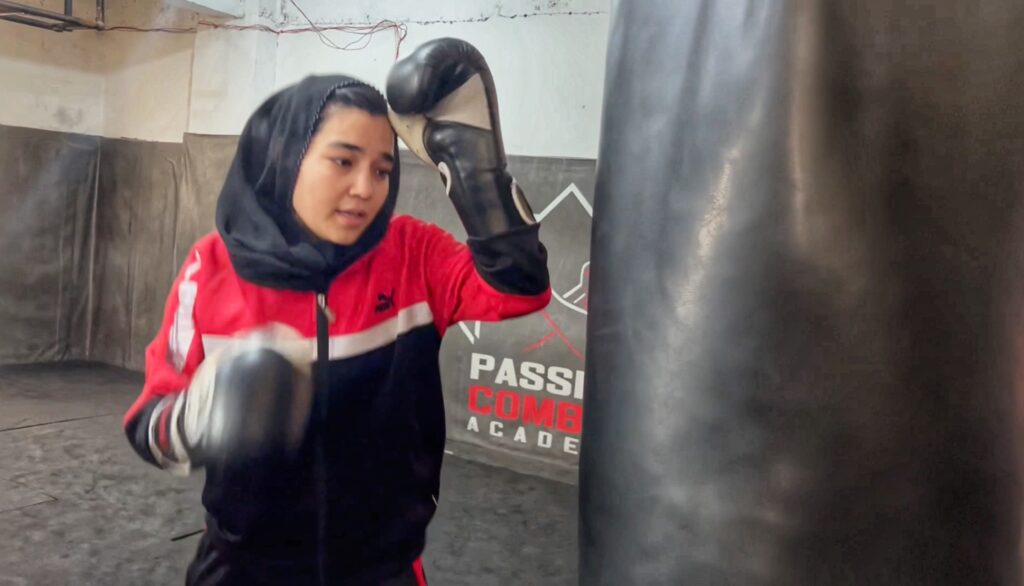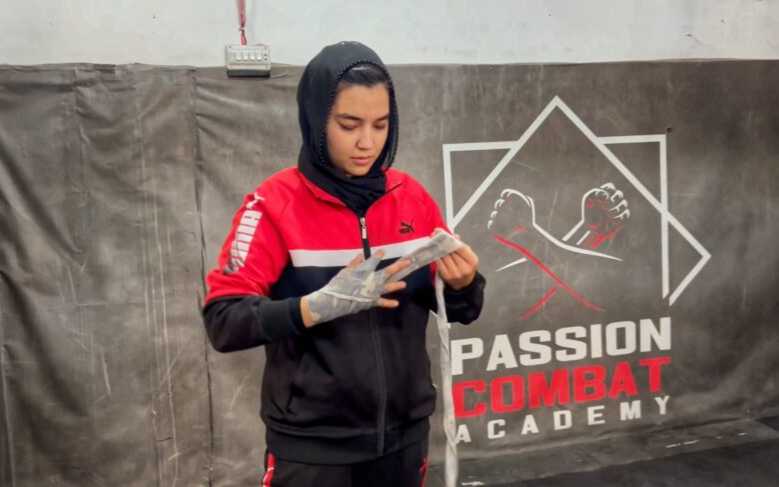Nargis Dowlatshahi, an Afghan sportswoman and martial artist, finds herself in a dire situation after being arrested by Islamabad police this morning. The young woman, who fled Afghanistan a year ago to escape the Taliban’s restrictions on women, now faces deportation back to her homeland—a country where she fears arrest and worse.
Nargis recounted to our reporters how she fled Afghanistan last year. Smuggled across the Nimroz province border into Pakistan, she sought refuge from the Taliban’s oppressive policies that ban women from participating in sports. Once in Pakistan, she registered herself with the United Nations High Commissioner for Refugees (UNHCR) in Islamabad, hoping to start a new chapter in safety.
But that safety is now under threat. Pakistani authorities arrested Nargis this morning, stating their intent to deport her back to Afghanistan – a country where she faces grave risks as a woman and an athlete.
Nargis is more than a refugee. Despite her hardships, she refused to let her circumstances define her. Living in a small rented room in Islamabad, she took it upon herself to inspire and empower others. She began training fellow Afghan migrant girls in martial arts, helping them regain a sense of strength and confidence in the face of adversity.

“Martial arts is not just about fighting; it’s about discipline, resilience, and self-respect,” Nargis said in an earlier conversation. “For Afghan women, it’s a way to claim a space in a world that tries to silence us.”
For Nargis, deportation to Afghanistan would mean returning to a regime that has banned women from participating in any form of sports. The Taliban’s strict interpretation of Islamic law leaves no room for female athletes, let alone those like Nargis who have defied societal norms.
“I fear being arrested by Taliban if I am sent back. I fear for my life and my future,”
Nargis told…
Her voice was trembling but determined. She has called upon the UNHCR and migrant organizations to intervene and prevent her deportation.
Advocacy groups are urging the Pakistani government to halt her deportation and calling on the UNHCR to take immediate action to protect her rights as a registered refugee.
“She represents the courage and strength of Afghan women,” said a local refugee rights group representative.
“Deporting her back to Afghanistan would be a grave injustice and a violation of international refugee law.”
As she awaits her fate in custody, Nargis’s message is clear:“I just want to live in a place where I can be safe, where I can teach, and where I can inspire others to believe in themselves. Is that too much to ask?”

Afghan Refugees Caught in Pakistan’s Crackdown
The arrest of Nargis Dowlatshahi comes amidst a crackdown on Afghan refugees in Pakistan, where many live in dire conditions resembling imprisonment. Refugees like Nargis, confined to small courtyards or guesthouses, report rampant harassment, extortion, and arrests by authorities targeting mainly undocumented families.
This campaign, launched by Pakistan in response to rising security concerns and strained relations with Afghanistan, has led to the deportation of over 750,000 Afghans, with thousands more living in constant fear of being expelled. Human rights groups have condemned the alleged racial profiling and extortion, likening the behavior of Pakistani authorities to that of the Taliban.
For many Afghans awaiting relocation to Western countries, life in Pakistan has become a daily struggle.
Despite Pakistan hosting over 1.5 million Afghan refugees and asylum-seekers, the government’s actions—such as mass arrests and deportation campaigns—have drawn sharp criticism.

Advocates urge Western nations to expedite the relocation of tens of thousands of Afghans still in limbo, warning that their plight reflects a broader humanitarian crisis fueled by geopolitical strife.
Credit: AIPS Media


